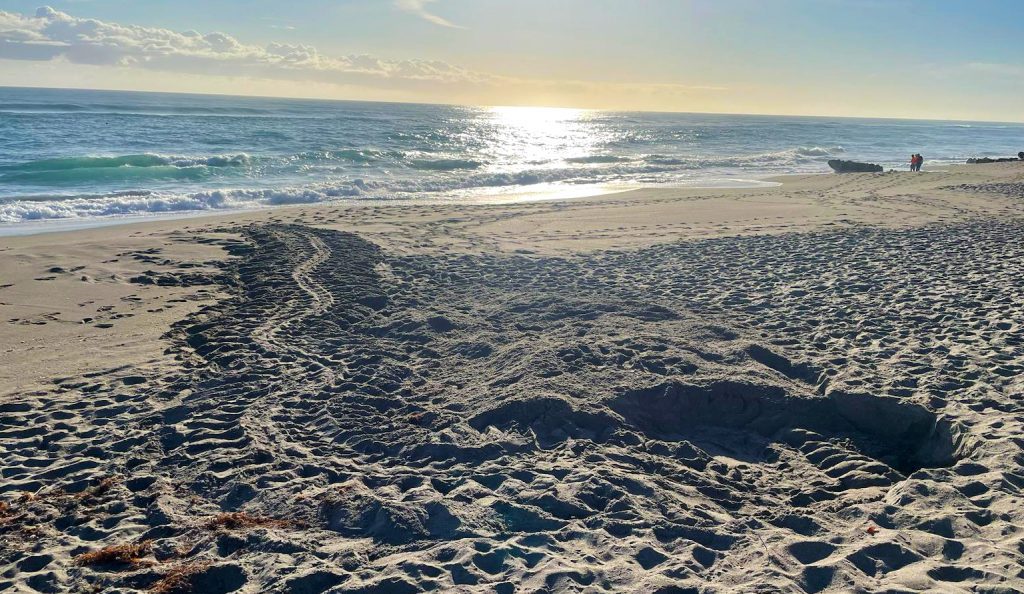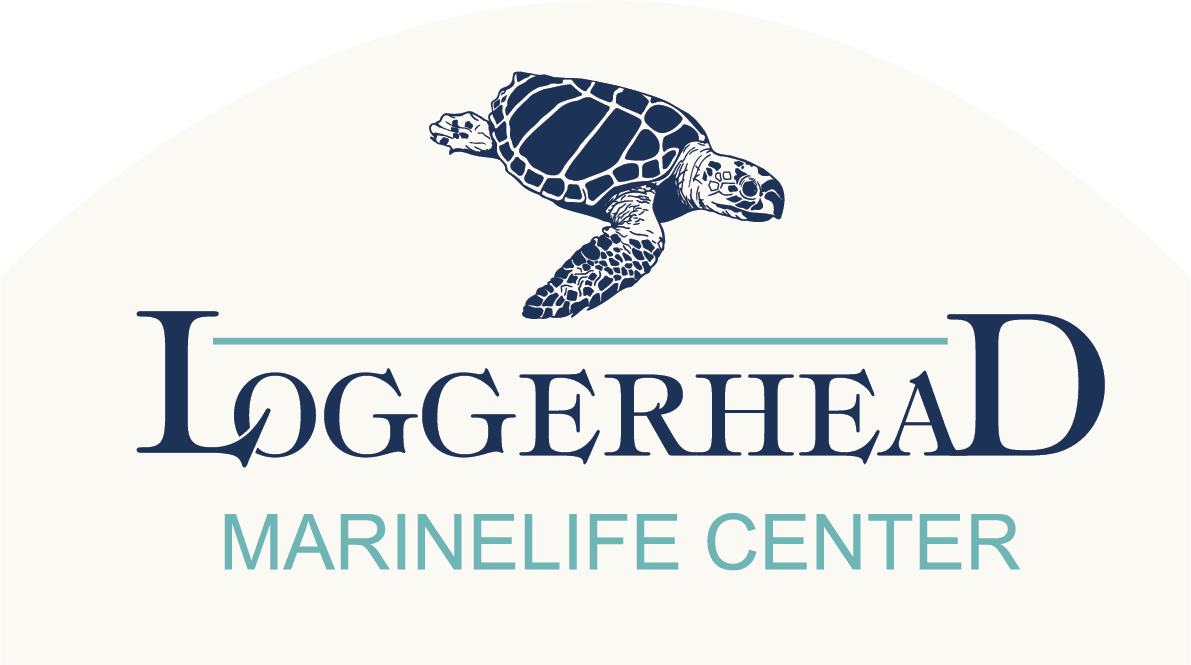
Juno Beach, Fla. (February 16, 2024) ─ Researchers at Loggerhead Marinelife Center (LMC) reported the first sea turtle nest of the season on Friday, February 16, the earliest ever recorded by LMC on their 9.5-mile stretch of beach in northern Palm Beach County. The leatherback sea turtle nest was found on the northern end of LMC’s beach survey area in Coral Cove Park. LMC monitors sea turtle activity along 9.5 miles of beach from the northern Palm Beach County line south to John D. MacArthur Beach State Park.
Sea turtle nesting season officially begins in Southeast Florida on March 1. Researchers at the Center already predict a positive year for leatherback sea turtles after seeing satellite-tagged turtles returning to the local waters to mate early this year. Nesting season in Southeast Florida is from March to the end of October.
“In addition to the earliest recorded nest by LMC, we are already seeing that some of our satellite-tracked leatherbacks have returned to the area or are on their way back to Florida from their foraging grounds,” said Justin Perrault, vice president of research at LMC. “This could indicate a very successful season for these species.”
LMC closed out the 2023 nesting season with a record-breaking 25,025 nests that produced more than 1 million hatchlings across the three species of nesting turtles in the Juno Beach area. Nesting season begins for leatherbacks first in March, followed by loggerheads in April, and green turtles in May. To ensure another fruitful nesting season, LMC urges beachgoers to familiarize themselves with what to do if they encounter a nest, hatchling, or sea turtle.
Visitors can best protect sea turtles by following the guidelines below.
- Keep Your Distance: Never approach or touch a nesting sea turtle. Keep your distance, remain quiet, and keep all lights off (including flash photography and cellphones). Touching, prodding, or shining lights is illegal and may cause nesting turtles to not lay eggs or disturb them so as to affect how well the nests are covered and camouflaged.
- Let Hatchlings Emerge: If you see hatchlings on the beach, allow them to crawl to the ocean on their own. Removing or digging hatchlings out of a nest is illegal. Removing sand above the nest will make it more difficult for the hatchlings to emerge.
- Avoid Certain Areas: Enter the beach at designated access points and avoid walking on the dunes or beach vegetation to protect sea turtle nests, shorebird nests, and the dune plant ecosystem.
- Minimize Light: Keep lights off at your home while not in use and close your blinds at night to avoid adding to overall sky glow.
- Take Your Belongings: Remove obstacles such as beach chairs, tables, watersport equipment, and umbrellas before dark. Properly throw away trash so that it doesn’t blow into the water or become an obstacle for a sea turtle.
- Digging and Holes: Only dig holes below high tide line in the hard-packed sand to avoid incubating sea turtle nests, and avoid using shovels. Fill all holes back in and knock over sandcastles so that nesting turtles and hatchlings are not impacted by these structures.
If sea turtle eggs become exposed, LMC advises beachgoers to leave the eggs and nest untouched. If a hatchling seems disoriented, LMC advises visitors to bring the hatchling to its 24-hour rescue cooler, which is located at the entrance of the Center. Threatened and endangered hatchlings should be transported with extreme care in a bucket with damp sand (but no water) to prevent accidental drowning.
For more information on nesting season and to track satellite-tagged sea turtles, visit marinelife.org/research.
About Loggerhead Marinelife Center (LMC)
Loggerhead Marinelife Center, located in Loggerhead Park, Juno Beach, Fla., is a sea turtle research, rehabilitation, education, and conservation center. The Center also manages the Juno Beach Pier across the street from the park. Established in 1983, LMC seeks to promote conservation of ocean ecosystems with a special focus on threatened and endangered sea turtles. Its facilities include a sea turtle hospital, a research laboratory, and exhibit areas, including live sea turtles and other coastal creatures. LMC has been named the third “Best Free Attraction” in USA Today’s 10 Best Readers’ Choice Awards for 2023.
